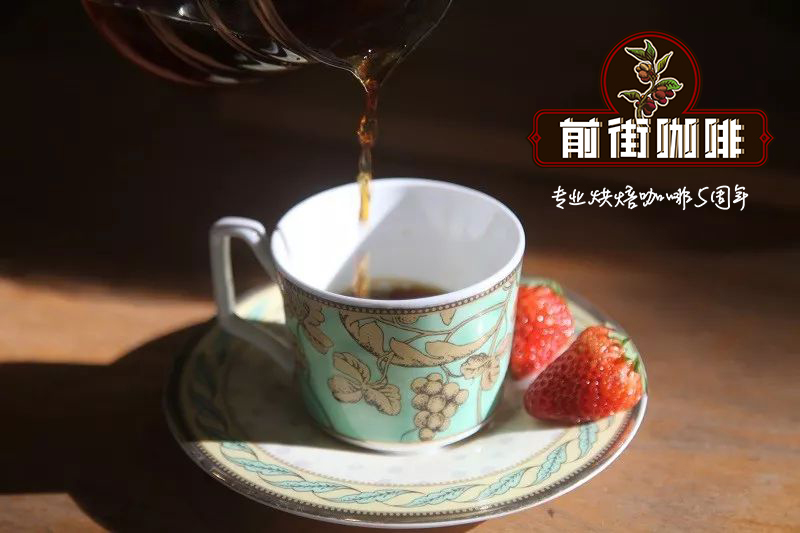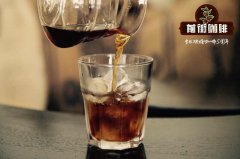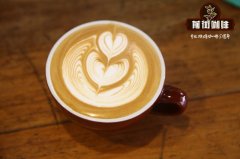Test report on washing Kenya AA+ Barawe berry coffee cup _ how to rinse Balawei berry coffee beans

Professional coffee knowledge exchange more coffee bean information please follow the coffee workshop (Wechat official account cafe_style)
Kenya Coffee-Mount Kirinaga Kenya Kirinyaga
Washing Full-Washed
[baking degree] shallow baking Light Roast
[bean seed] SL28,& SL34
[place of origin] Kenya Kirinyaga, Mount Kirinaga, Kenya
[cooperative] Baragwi Balawe
[manor condition] has 16000 employees and 12 raw bean processing plants
[altitude] 1700-1800m
Volcanic soil
[grade] AA / 18 Mesh Top
[defect rate] 1%
[net content] 227g (half pound)
[cup test report]
Cream, plum, BlackBerry, cinnamon, tomato
[Shixiang] Sanhua plum, sweet orange, raspberry, kiwi fruit
[sips] the rose jasmine, the soft fruit aroma like raspberry in the mouth, the huge, complex, lively and unrestrained fresh tomato acid quickly explodes in the mouth, and the stickiness and smoothness of red wine. After being slightly cool, it is even thicker and more delicate, with a touch of tea at the end, which is generally close to the fresh berry juice of raspberries.
Kenyan coffee has always been extremely lively in acidity and excellent in consistency, so it is called the red wine in coffee. Rose prefers berries to spices in Kenya, so we are basically looking for Kenya with a very hard and positive berry flavor. Tambaya's Kenya is an excellent representative of this flavor, sun washing has tried, indeed each has its own advantages, are very amazing! The performance of 14-year-old new beans is different from that of 13 years in the fragrance of flowers. The fragrance of new beans is very strong, and the dry fragrance gives people the illusion of Essex beans.
The wrapped feeling of imported creamy plum, the sticky and solid explosion of berry juice, the presumptuous and extreme acidity of raspberry, Sanhua plum and Hawthorn, and the smoothness of red wine. The overall thick and lively, extremely positive berries and active acidity are the preferred items for eosinophilic brown lovers.
[about Kenya]
Kenya is a model country for producing fine coffee beans. Coffee was introduced from Britain in 1900. Only traditional Arabica did not have the best bourbon species of SL28 and SL34 in Kenya until 1950. All water treatment methods and graded AA PLUS?AA?AB systems are adopted, but this is only a difference in particle size uniformity and does not represent a difference in quality. High quality elevations range from 4200 to 6800 feet. From 2009 to 2010, due to the influence of global warming and pathological changes, the output decreased and the price rose. After that, the fine coffee continued to rise and the irreplaceable BlackBerry flavor of Kenyan coffee kept the high price of good Kenyan beans. Therefore, Qianjie coffee is the first choice to buy better quality Kenyan coffee beans, the larger beans have high wine BlackBerry acid, can be harvested twice a year, 4Fry-June is the secondary season. December is the harvest season of the main production season.
Most of the coffee beans are graded by the Kenya Coffee Bureau and sold at the auction venue. The system of public auction can be traced back to the way of auction before 1934. Kenya has 50 licensed agents who send sample beans to their customers for cup testing. Customers can bid for their favorite coffee at the auction. But this approach seems to encourage intermediary agents to erode farmers' income, so in 2006 Kenya opened 32 more independent sales agents to contact foreign coffee buyers directly without going through auctions. however, these must meet the standards of quality, storage, bank guarantee and other standards of the Kenyan Coffee Agency before they can be sold. The two systems operate in parallel at the same time, and after several years of development, it is the most transparent auction distribution system. The better the coffee is, the better the price can be measured through the cup, so that more cooperatives and farms are willing to join, but the latter can contact farmers directly to get first-hand information.
Balawe is one of the largest cooperatives in Kenya, with a total of 12 washing plants and about 12000 small farmers. Including Gachami, Githiururi and so on are very well-known hot processing plants in the boutique coffee industry.
END
Important Notice :
前街咖啡 FrontStreet Coffee has moved to new addredd:
FrontStreet Coffee Address: 315,Donghua East Road,GuangZhou
Tel:020 38364473
- Prev

Kenyan AA coffee bean black goddess Kanami brewing experience _ black goddess Kanami coffee is good?
Professional coffee knowledge exchange more coffee bean information please follow Coffee Workshop (Wechat official account cafe_style) Kenya AA Coffee Bean Kanami / Kanamu processing Plant kainamui Factory Kanamu processing Plant (Kainamui Factory) is part of the NFCS Cooperative (New Ngariama Farmers Co-operative Society), located in the sacred mountain of Kenya (Kirinyag).
- Next

Is the Kenyan coffee bean SOE coffee good? medium and deep roasted Kenyan SOE Italian concentrated flavor
Professional coffee knowledge exchange more coffee bean information please follow the coffee workshop (Wechat official account cafe_style) Kenya soe mellow sweet Australia white deep roasting before tea, the first time to know about the country of Kenya. But what really impressed me about Kenya was years later, just because of its coffee. Although I don't like Kenyan tea, Ken
Related
- Detailed explanation of Jadeite planting Land in Panamanian Jadeite Manor introduction to the grading system of Jadeite competitive bidding, Red bid, Green bid and Rose Summer
- Story of Coffee planting in Brenka region of Costa Rica Stonehenge Manor anaerobic heavy honey treatment of flavor mouth
- What's on the barrel of Blue Mountain Coffee beans?
- Can American coffee also pull flowers? How to use hot American style to pull out a good-looking pattern?
- Can you make a cold extract with coffee beans? What is the right proportion for cold-extracted coffee formula?
- Indonesian PWN Gold Mandrine Coffee Origin Features Flavor How to Chong? Mandolin coffee is American.
- A brief introduction to the flavor characteristics of Brazilian yellow bourbon coffee beans
- What is the effect of different water quality on the flavor of cold-extracted coffee? What kind of water is best for brewing coffee?
- Why do you think of Rose Summer whenever you mention Panamanian coffee?
- Introduction to the characteristics of authentic blue mountain coffee bean producing areas? What is the CIB Coffee Authority in Jamaica?

